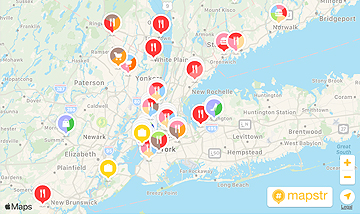Environmental conference
Paris, November 28, 2014
(Check against delivery)
(…)
The issue of the environment is the crucial issue for all humanity. It’s a vision of the world that forces us to reinvent our behaviour and the philosophy guiding our action.
Sustainable vision is the best answer to a twisted form of modernity, namely the dictatorship of the immediate and the short-term. Seeing far ahead, foreseeing not only tomorrow but the day after tomorrow, and thinking out our public policies better over the long term is also a remedy for the crisis in confidence and the fear of the future that too often burden our society.
This closing moment [of the conference] marks not only the end of one stage but also the beginning of the next.
ENVIRONMENTAL CONFERENCE
Many ministers have been here alongside you over these two days. That’s proof that the government, and above all the Minister of Ecology, Sustainable Development and Energy, are acting. I want to thank her for the organization and success of this meeting.
I also want to thank all the speakers, all of you, for the quality and richness of the contributions.
This conference has become a highlight in the environmental debate in our country. That debate doesn’t go on for just two days! It takes place all year round, particularly at the National Council for Ecological Transition.
I know some of you believed that, at the two previous conferences, the government didn’t leave itself enough time to take on board the fruits of your labours. We’ve taken account of this by giving ourselves a few weeks.
So in January I’ll bring the whole government together for a meeting of the Interministerial Committee for Sustainable Development. It will adopt the road map for 2015, which I’ll then present at an extraordinary meeting of the National Council for Ecological Transition.
As you see, on this subject as on the others, we’re making progress;
we’re getting France moving.
Environmental challenges have become a priority
There’s an environmental emergency.
Because there is an emergency. A planetary emergency.
For decades people have been shouting out, crying out “emergency”. So we’re now beyond emergency and, more than ever, we’re at a turning-point in our responsibilities.
The President said it forcefully yesterday. The IPCC scientists demonstrated it a few days ago: the warming of the climate system is undeniable. And it’s unprecedented.
Since the 1950s the atmosphere and the oceans have been warming; glaciers have been receding, ice floes melting and the sea level rising.
The pace of these changes has accelerated sharply, painting humanity into a corner. To look away would be a mistake. To remain inactive would be madness – at any rate, a fatal blow struck to future generations.
If nothing changes, the most likely scenario is a black one: climate hazards will proliferate, with heatwaves and extreme precipitation. More frequently. More heavily. Populations – the most exposed and poorest first – will be severely affected. So environmental injustice will be added to social injustice. Biodiversity will decline, as it has already started to. In this scenario, the consequences will be heavy for agriculture, forests, fisheries and humankind. For all living things. (…)
Ecology and economy
As the President has recalled, ecology mustn’t put a brake on the economy.
I want to tell you what I think deep down: the main challenge – even more than reconciling ecology and economy – is to ensure that the environment is a path to our economic success.
I believe in an ecology based on innovation. I believe in an ecology that isn’t afraid of development and doesn’t regard science, technological progress and industry with mistrust or, worse still, as enemies. I believe in an ecology that creates new industries, particularly in agriculture. The path we’re marking out is that which supports our growth while protecting our environment.
Yes, I’ll keep an eye on balance between the economy and ecology.
At the same time as we’re making progress on the energy transition, we must ensure our industries are competitive. Some have important energy needs; some still have high levels of emissions. There’s no question of having them move abroad, under the pretext that it’s more worthwhile for them to produce elsewhere than on our soil. We must enable them to reshape themselves and modernize.
Just as I believe in an industry capable of adapting, so I believe in modern, innovative, ecological agriculture. The future bill being put forward by Stéphane Le Foll will enable us to develop agro-ecology. The Responsibility and Solidarity Pact and the reform of the Common Agricultural Policy are both opportunities that must be grasped in order to reorient our agriculture towards sustainable development.
Agriculture and forestry are central to the energy transition. And we must go further on making best use of agricultural waste, on reducing its greenhouse gas emissions and on carbon sequestration in agricultural land.
We must also grow the timber industry. Timber is an under-used asset for our country. We have Europe’s largest forests and have been unable to exploit them sufficiently. The Renewable Heat Fund of ADEME [Environment and Energy Management Agency] will be mobilized to help the industry.
Our country’s dynamism lies in its businesses, its agriculture and its forests. It also lies in its major infrastructure projects, which mustn’t be pitted against environmental protection, provided they’re acceptable and accepted. (…)
We’re acting in every sphere of the ecological transition
Our energy strategy
The first is our energy strategy.
The Head of State has set the goal: to diversify our electricity mix and reduce our consumption. To that end, we must massively develop renewable energy and reduce the share of fossil fuels.
France has the good fortune of having a high-performance nuclear power fleet. Yes, it is good fortune, and a strength when it comes to making the energy transition economically sustainable. We can continue benefiting, for as long as necessary, from decarbonized, competitive electricity. We must tell the French people this truth. And our compatriots must also know that it’s not about pitting renewable against nuclear energy. On the contrary, we want to reconcile them thanks to smart networks.
I sometimes hear that renewable energy is costly and that other countries are backtracking, or are going to backtrack. That’s not the choice France is making. Our strategy is clear: to continue developing our industrial networks in order to prepare tomorrow’s energy mix.
And at the same time – because the two go hand in hand – we must support households, businesses and local authorities to reduce their consumption. First of all, through energy renovation of housing. We’re encouraging it through the tax credit on renovation work. Secondly, by offering advantageous loans to businesses and local authorities to make the necessary investments, which will enable savings to be made in the long term.
In 2015, the government will have to draw up two major documents: the low-carbon strategy and the first multiannual energy plan.
It’s the first stage towards the major goals of the transition act. It’s the road towards 40% fewer emissions by 2030. It’s the path towards dividing them by four by 2050.
We’ve set major goals for 2025-2030 to rebalance the energy mix. But the electricity system takes a long time to change. So we must plan ahead, through multiannual energy plans. It’s about giving clear, stable targets to each industry (wind, photovoltaic, biogas etc.). It’s the only way to develop industrial networks. It’s also about developing electricity, gas and thermal energy grids. We’ll also have to take into account uncertainties, which are natural over a long period. I’d like choices to be guided by a constant concern for economic and industrial efficiency and security of supply.
I’ll need you and your expertise for this planning. We’ll have to take inhabitants’ lifestyles into account, as well as the specific nature of regions. The diversity of France’s resources, activities and landscapes is a good thing for the energy mix. It’s up to us to be inventive! (…)
2015, a decisive year
Ladies and gentlemen,
The priorities are clear. They enable us to move forwards. And moving forwards also means setting ourselves deadlines.
Environmental conference road maps
As from next week – as I’ve said – the ministries will examine your draft road maps, be they on sustainable mobility, health and the environment or mobilization against climate disruption. I’ll seek to ensure that all your work is made use of. I’ll also seek to ensure, in coordination with the Ministry of Ecology, that there is progress on this throughout the year.
2015 Paris Climate Conference
2015 will be a special year, a year that matters. By hosting the Climate Conference, France will bear a major responsibility: to make the whole world conscious of the need to act together against climate disruption, and to call on every country to unite to combat global warming.
Foreign Minister Laurent Fabius is taking charge of negotiations with all the planet’s diplomatic services, because this agreement will have to be built and will have to be secured.
We must limit our carbon emissions. And to that end, carbon must have a price. On this too, I want to assure you of France’s determination to find possible compromises!
We’re going to put an end to government support for exports of coal-fired power stations. It’s necessary. And it’s a position that France – which intends to set an example – will uphold at international level, at the OECD and then at the COP21 negotiations. We must also remove from our planet coal plants with no carbon [capture and] storage. There again, we want to have an influence to ensure things get moving. (…)./.














